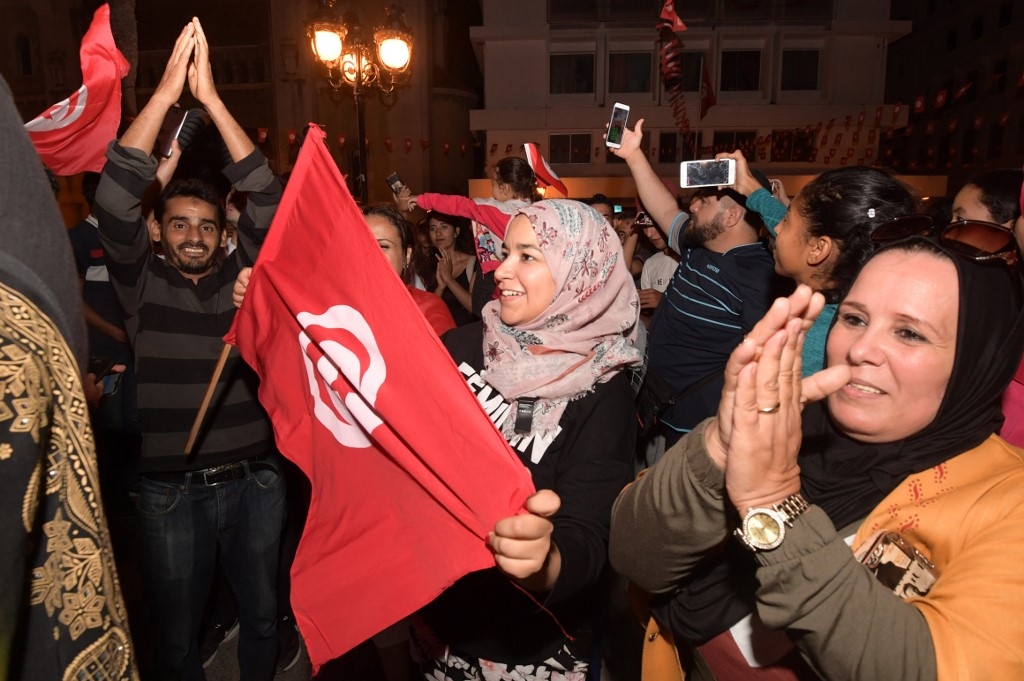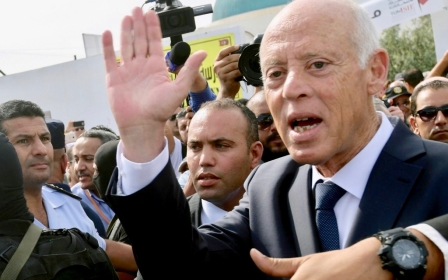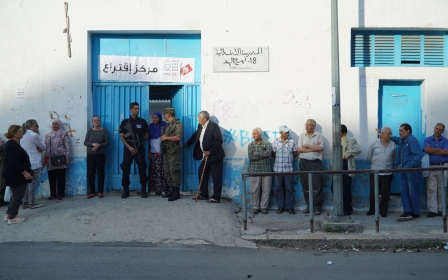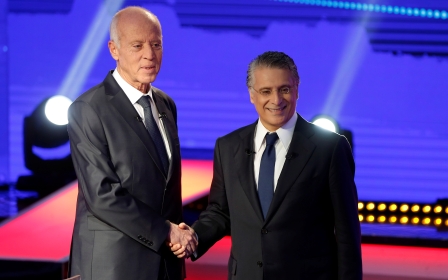Tunisia elections: Saied victory resonates for social media users across the Middle East

For many social media users in the Middle East and North Africa, Kais Saied’s landslide victory on Sunday in Tunisia’s second free and fair presidential election since the Arab Spring represents new hope for the region.
Saied secured 72.71 percent of the popular vote, according to the country’s electoral commission. He ran against Nabil Karoui, who is facing charges of money laundering and tax fraud, allegations he vehemently denies. Karoui was sent to prison on 23 August but was released last week ahead of the second round of presidential elections.
Thousands of people took to the streets in the capital, Tunis, to celebrate Saied's win. Around 90 percent of 18-25-year-olds voted for Saied, according to estimates by the Sigma polling institute.
Saied's positions over regional politics have won him support, both at home and abroad.
In a televised presidential debate on Friday, Saied spoke of his desire to end the war in neighbouring Libya and he has been unequivocal in rejecting the normalisation of ties with Israel.
Stay informed with MEE's newsletters
Sign up to get the latest alerts, insights and analysis, starting with Turkey Unpacked
“Whoever normalises relations with Israel is a traitor and must be charged as a traitor,” he said.
In many of the street celebrations following his victory, Palestinian flags were waved and pro-Palestinian chants could also be heard.
Translation: 'Palestine free free... Zionists out.’ Tunisians chant on al-Thawra street in the capital in celebration of the victory of Kais Saied.
Online, people shared a strong feeling that the Arab Spring - in reference to the popular uprisings of 2011 across the Middle East - was still alive, with Tunisia seen as a success story of the democratic process in the Middle East, bringing hope for other countries struggling under authoritarian rule.
In addition to pro-Palestinian slogans, people in the streets of Tunisia also chanted against Egyptian President Abdel Fattah el-Sisi.
Egypt has recently been facing growing condemnation from rights groups after at least 3,000 people were arrested since 20 September, when protests broke out demanding Sisi step down.
Egyptian lawyer and human rights activist Gamal Eid commented on the election, contrasting it to what is happening in Egypt.
Translation: Democracy does not prevent crime, but it guarantees the punishment of criminals. Democracy is what is happening in Tunisia, the opposite is what is happening in Egypt. Tunisia has democracy, Egypt has a dictatorship. Congratulations to Tunisia and its people.
Activists and journalists praised Tunisia for the election, calling it a win for democracy.
Khaled al-Meshri, the president of the High Council of State of Libya, congratulated Saied and expressed hope that Libya would also follow in the path of democracy.
Translation: I extended my sincere congratulations to Tunisian President Kais Saied on his victory in the Tunisian elections. This is a crown of democracy for our beloved Tunisia, and we hope that he will be successful in serving Tunisian aspirations. I hope that my country will soon follow this path and that Libyans will be able to choose those who govern them in a transparent and democratic manner.
Although the role of president has fewer powers than that of the prime minister in Tunisia, the post still carries wide political influence.
Middle East Eye delivers independent and unrivalled coverage and analysis of the Middle East, North Africa and beyond. To learn more about republishing this content and the associated fees, please fill out this form. More about MEE can be found here.




